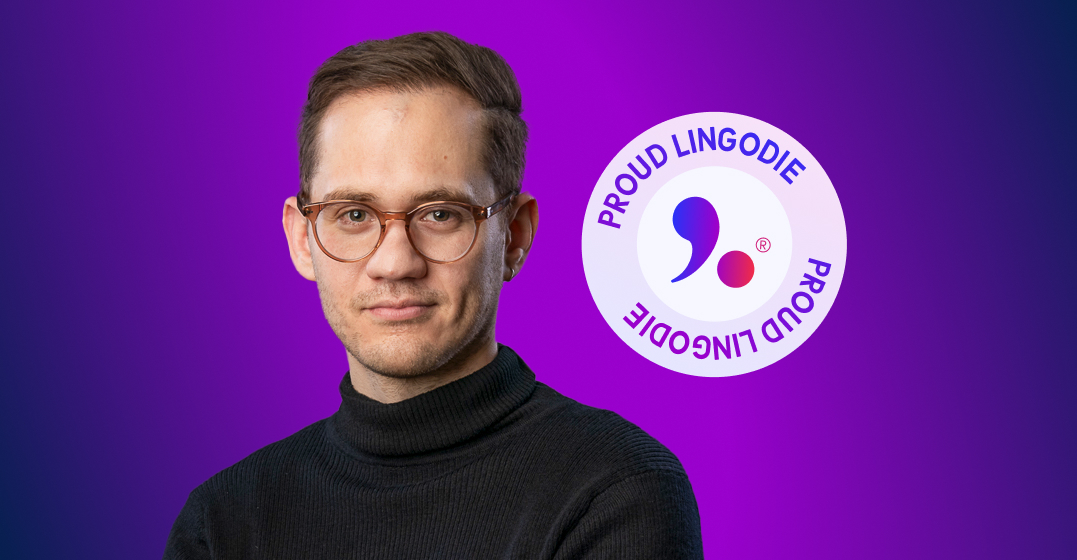Accent pride: An untapped leadership skill
Picture this: a Latina executive in Texas leads a multilingual team. Her role demands a professional Spanish fluency, something US-born candidates struggle with. She was born in Mexico, is fully bilingual—accent intact—and excels at her job.

Yet in multicultural countries like the United States, the UK and Canada, accents can become objects of bias and exclusion. How often do we stereotype the way many bilingual people speak as a negative attribute for a job or even a high-level leader? If we think about it, shouldn't multilingualism count as cultural and linguistic dynamism over monolingual job competitors? Unfortunately, research tells us the opposite: accent discrimination is still a pervasive issue in the workplace.
Language learners often work hard to soften their accent in hopes of assimilating and blending in. This is because accents carry perceptions of race, class and immigration status.
But accents are not flaws to erase. They are among our strongest identity markers and carry one’s cultural and historical depth. They show resilience, global perspective, and the courage it takes to learn and use another language. So here’s the question: How can companies benefit from embracing representation and accent pride? Let’s take a look.
- Linguistic diversity in leadership: Why it matters
- The hidden bias around accents
- Accent pride: A leadership skill
- ‘Accent pride’: How can an organization benefit?
Linguistic diversity in leadership: Why it matters
Linguistic diversity strengthens leadership by improving global communication, fostering cultural inclusion, and enhancing cognitive skills. Let’s see why into details:
Global demand for multilingual leaders
Market borders have grown increasingly blurred as businesses go global. This has fueled a surge in demand for multilingual professionals who can bridge cultural gaps, construct strong client relationships and lead sustained success.
Cultural authenticity and leadership impact
Accents and cultural identity are assets, not obstacles. Leaders who take pride in their uniqueness normalize diversity, reduce bias and help others feel represented and valued. This all, in turn, builds trust and creates a sense of belonging that empowers others to share innovative ideas and engage more deeply in an organization’s culture.
Cognitive benefits of multilingualism
Multilinguism enhances cognitive flexibility. The ability to switch between languages strengthens skills such as fast learning, problem-solving and juggling competing priorities (all essential qualities for effective leadership).
Here are some leaders who exemplify how multilingual backgrounds can drive success and foster representation:
- Sundar Pichai (Indian-American): CEO of Google
- Satya Nadella (Indian-American): CEO of Microsoft
- Nina Vaca (Ecuadorian-American): CEO of Pinnacle Group
The hidden bias around accents
Despite multilinguality being a coveted asset, immigrant professionals still face prejudice due to their accent. This can leave them in disadvantaged positions.
Accent bias in hiring and perception
Stereotypes can influence hiring practices, particularly during job interviews. Studies show that people with hiring experience tend to make overgeneralizations about others based on speech patterns alone. These biases shape perceptions of an applicant’s interpersonal skills, social status and even competence, which can impact their hireability.
Findings from accent bias studies
In this regard, a meta-analysis of accent bias in employee interviews revealed several key findings:
- Applicants with a ‘standard accent’ (SA) were favored more than those with a ‘non-standard accent’ (NSA) when it came to hiring recommendations (choosing a US native English speaker over a Filipino native English speaker for example)
- SA applicants were perceived as being more competent than NSA applicants
- SA applicants were thought of as ‘warmer’, and therefore more hirable, than their NSA counterparts
- The degree of accent bias in job interviews didn't vary much by accent type (nonnative, ethnic or regional)
Psychological consequences of accent bias
These biases have psychological consequences for those feeling pressure to assimilate for better employment prospects. Often, this takes the form of code-switching (altering our dialect, accent or behavior depending on the context), which adds extra cognitive load and prevents us from fully focusing on other tasks. This can reduce productivity and become a mental burden. It can even lead to a type of Imposter Syndrome.
Gendered accent disadvantages
Beyond accent bias, studies reveal an "accent ceiling" that impacts women more detrimentally than men. In the workplace, women are portrayed as less competent, and more submissive than men, who are rewarded and expected to be confrontational and assertive. Linguistic differences compound these stereotypes: NSA women were rated less hireable than women with standard accents, but NSA men were judged equally regardless of accent. Here, accent bias intersects with gender prejudices surrounding women’s soft skills.
Accent pride: A leadership skill
Embracing and taking pride in differences, such as accents, helps others feel included and valued. This is a powerful leadership skill. We can cultivate it not by focusing on perfection, but by striving for clarity in messaging and pushing for inclusivity.
Practical strategies to build accent pride
Here are some practical strategies professionals can implement:
- Speak with pride at conferences to normalize linguistic diversity
- Weave immigration stories into storytelling to connect with others
- Mentor other professionals and model confidence
- Build accent pride into our personal brand and inspire others by spotlighting your resilience, adaptability and global perspective
‘Accent pride’: How can an organization benefit?
Accent pride is more than an individual skill—it strengthens organizations by embedding inclusivity into leadership and culture. Prime Minister Justin Trudeau once said: “Diversity is the engine of invention. It generates creativity that enriches the world.”
Key organizational advantages of diversity
Organizations (and countries) with remarkable linguistic and cultural diversity often:
- Drive innovation, problem-solving and productivity
- Create trust and understanding within global markets
- Attract and retain top multicultural talent
To illustrate, let’s look at data that highlights the positive benefits of diversity in leadership:
- Organizations with the highest levels of leadership diversity are over 35% more likely to financially outperform those with lower diversity
- Most employees prefer to work at organizations that value diversity and inclusion. Employee satisfaction is crucial for talent retention and attraction
- Inclusive companies are 35% more productive and over 20% more likely to be perceived as industry leaders with top-tier talent
A call to lead with your voice
"Own your true sound… honor it a little… let the color and texture of your experiences shine.”
— Lake Bell, speaking on the “Innate Beauty of Accents”
Hyperglobalization has paved the way for greater diversity across industries. Yet, professionals still feel pressured to assimilate into certain cultures to achieve success. This often suppresses uniqueness when it comes to linguistic diversity and accents.
However, feeling confident in our speech promotes trust, innovation and belonging in a positive feedback loop. This leads to stronger financial performance, higher talent retention and market resilience. Leadership through diversity is empowering, and it should be proudly embraced to the fullest.

Begin your personal language journey
- Courses tailored to your learning needs
- Qualified teachers, small class sizes
- Expert-designed curriculum
- Live classes with native-level teachers















